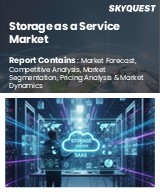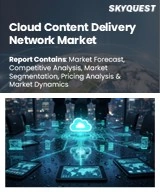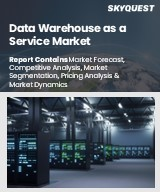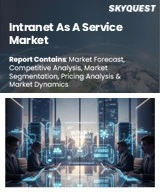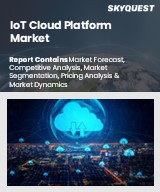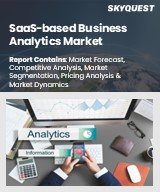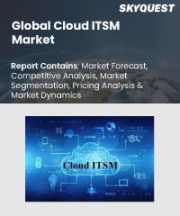
|
시장보고서
상품코드
1718455
프라이빗 클라우드 시장 : 전개 모델, 서비스 유형, 가격 모델, 조직 규모, 사용자 유형, 최종 용도별 - 세계 예측(2025-2030년)Private Cloud Market by Deployment Model, Service Type, Pricing Model, Organization Size, User Type, End-Use - Global Forecast 2025-2030 |
||||||
프라이빗 클라우드 시장은 2024년에는 1,199억 6,000만 달러로 평가되었으며, 2025년에는 CAGR 10.96%로 1,327억 7,000만 달러로 성장하고, 2030년에는 2,239억 7,000만 달러에 달할 것으로 예측됩니다.
| 주요 시장 통계 | |
|---|---|
| 기준 연도 2024년 | 1,199억 6,000만 달러 |
| 추정 연도 2025년 | 1,327억 7,000만 달러 |
| 예측 연도 2030년 | 2,239억 7,000만 달러 |
| CAGR(%) | 10.96% |
오늘날의 급변하는 디지털 시대에 프라이빗 클라우드 환경은 전례 없는 속도로 진화하고 있으며, 혁신을 촉진하고 기업의 IT 자원 관리 방식을 재정의하고 있습니다. 이 시장은 탄탄한 인프라 투자, 진보적인 비즈니스 모델, 안전하고 확장 가능한 맞춤형 클라우드 솔루션에 대한 수요 증가에 기반한 중요한 발전의 이정표를 확인했습니다. 이 보고서는 프라이빗 클라우드 생태계의 궤적을 그리는 시장 역학, 새로운 트렌드, 기술 발전에 대한 종합적인 분석을 제공합니다. 이해관계자들은 운영 효율성 향상, 다운타임 감소, 리소스 할당 최적화에 중점을 두어 프라이빗 클라우드 전략의 변화 가능성을 활용할 수 있습니다. 이 개요는 최신 산업 데이터에서 도출된 명확한 인사이트를 통해 기업이 성공하기 위해 필요한 전략적 필수 사항을 개괄적으로 설명합니다. 프라이빗 클라우드 솔루션의 도입이 증가함에 따라 기업은 산업별 과제를 해결하고, 위험을 완화하며, 지속적인 성장과 경쟁 우위를 확보할 수 있는 기회를 활용할 수 있게 됩니다.
프라이빗 클라우드 시장의 변화
최근 프라이빗 클라우드 시장은 전통적인 IT 패러다임을 현대 비즈니스 요구에 완벽하게 부합하는 역동적이고 민첩한 시스템으로 재구성하는 변혁의 시기를 맞이하고 있습니다. 이러한 진화는 모놀리식 데이터센터에서 하이브리드 클라우드 및 멀티 클라우드 구현을 지원하는 가상화 프레임워크로의 전환으로 특징지어집니다. 빠른 기술 혁신과 함께 강화된 보안 요구 사항 및 규정 준수 의무화로 인해 보다 탄력적이고 사용자 정의가 가능한 프라이빗 클라우드 플랫폼에 대한 수요가 가속화되고 있습니다. 또한, 기업들은 온디맨드 확장성, 성능 최적화, 고급 분석 기능과의 통합에 대한 가치를 점점 더 많이 인식하고 있습니다. 기업이 지속적인 디지털 전환을 추구함에 따라 시장은 자동화, AI 기반 분석, 오케스트레이션 기능 강화 등 다양한 첨단 서비스를 통해 적응하고 있습니다. 이러한 추세는 효율성을 높일 뿐만 아니라 업무의 민첩성을 촉진하고, 기업이 시장 변화에 빠르게 대응하고 진화하는 사이버 보안 위협을 완화할 수 있도록 돕습니다. 요컨대, 프라이빗 클라우드 영역의 혁신적 변화는 기업 IT 전략의 르네상스를 촉진하고, 견고하고 미래지향적인 운영의 토대를 마련하고 있습니다.
주요 부문별 인사이트
프라이빗 클라우드 시장을 자세히 분석하면 전략적 투자와 혁신적인 서비스 제공을 촉진하는 여러 세분화 기준에 의해 정의되는 복잡한 상황이 드러납니다. 이 시장은 전용 리소스 관리를 목적으로 하는 호스팅 프라이빗 클라우드, 통제와 지원을 통합적으로 제공하는 매니지드 프라이빗 클라우드 서비스, 퍼블릭 클라우드 인프라의 유연성과 프라이빗 환경의 보안을 결합하는 가상 프라이빗 클라우드 구성 등 도입 모델에 따라 기본적으로 구분됩니다. 마찬가지로 매우 중요한 것은 서비스 유형별 세분화입니다. 여기서는 IaaS(Infrastructure-as-a-Service), PaaS(Platform-as-a-Service), SaaS(Software-as-a-Service)로 구분하여 시장을 조사하고 있습니다. 스토리지, PaaS는 애플리케이션 개발, 비즈니스 분석, 데이터베이스 관리 등, SaaS는 협업 도구, 고객관계관리, 엔터프라이즈 자원 계획 등입니다. 또한, 종량제 및 구독 기반 접근 방식으로 구성된 가격 책정 모델도 세분화에 대한 인사이트를 제공하여 기업이 투자와 사용 패턴을 일치시킬 수 있도록 도와줍니다. 또한, 대기업부터 중소기업까지 조직 규모별, 개발자 및 IT 전문가와 같은 사용자 유형별로 분류하여 시장의 다용도성을 강조하고 있습니다. 마지막으로 은행, 금융서비스, 보험, 교육, 정부/공공기관, 의료, IT/통신, 제조, 유통, 운송/물류 등 최종 용도별 분류를 통해 다양한 산업이 각각의 업무 수요에 맞게 프라이빗 클라우드 솔루션을 어떻게 커스터마이징하고 있는지를 전반적으로 파악할 수 있습니다.
목차
제1장 서문
제2장 조사 방법
제3장 주요 요약
제4장 시장 개요
제5장 시장 인사이트
- 시장 역학
- 성장 촉진요인
- 성장 억제요인
- 기회
- 해결해야 할 과제
- 시장 세분화 분석
- Porter’s Five Forces 분석
- PESTLE 분석
- 정치
- 경제
- 사회
- 기술
- 법률
- 환경
제6장 프라이빗 클라우드 시장 : 전개 모델별
- 소개
- 호스티드 프라이빗 클라우드
- 매니지드 프라이빗 클라우드
- 가상 프라이빗 클라우드
제7장 프라이빗 클라우드 시장 : 서비스 유형별
- 소개
- IaaS(Infrastructure-as-a-Service)
- 컴퓨팅
- 네트워킹
- 스토리지
- PaaS(Platform-as-a-Service)
- 애플리케이션 개발
- 비즈니스 분석
- 데이터베이스 관리
- SaaS(Software-as-a-Service)
- 협업 툴
- 고객관계관리
- 기업 자원 관리
제8장 프라이빗 클라우드 시장 : 가격 모델별
- 소개
- 종량 과금 모델
- 구독 모델
제9장 프라이빗 클라우드 시장 : 조직 규모별
- 소개
- 대기업
- 중소기업
제10장 프라이빗 클라우드 시장 : 사용자 유형별
- 소개
- 개발자
- IT 프로페셔널
제11장 프라이빗 클라우드 시장 : 최종 용도별
- 소개
- 은행, 금융 서비스, 보험(BFSI)
- 교육
- 정부와 공공 부문
- 의료
- IT·통신
- 제조업
- 소매
- 운송·물류
제12장 아메리카의 프라이빗 클라우드 시장
- 소개
- 아르헨티나
- 브라질
- 캐나다
- 멕시코
- 미국
제13장 아시아태평양의 프라이빗 클라우드 시장
- 소개
- 호주
- 중국
- 인도
- 인도네시아
- 일본
- 말레이시아
- 필리핀
- 싱가포르
- 한국
- 대만
- 태국
- 베트남
제14장 유럽, 중동 및 아프리카의 프라이빗 클라우드 시장
- 소개
- 덴마크
- 이집트
- 핀란드
- 프랑스
- 독일
- 이스라엘
- 이탈리아
- 네덜란드
- 나이지리아
- 노르웨이
- 폴란드
- 카타르
- 러시아
- 사우디아라비아
- 남아프리카공화국
- 스페인
- 스웨덴
- 스위스
- 튀르키예
- 아랍에미리트
- 영국
제15장 경쟁 구도
- 시장 점유율 분석, 2024년
- FPNV 포지셔닝 매트릭스, 2024년
- 경쟁 시나리오 분석
- 전략 분석과 제안
기업 리스트
- Accenture PLC
- Alibaba Group
- Amazon Web Services, Inc.
- Atos SE
- Check Point Software Technologies Ltd.
- Cisco Systems, Inc.
- Cloud Software Group, Inc.
- Dell Technologies Inc.
- DigitalOcean Holdings, Inc.
- DXC Technology Company
- Equinix, Inc.
- Furukawa Group
- Google, LLC
- Hewlett Packard Enterprise Development, LP
- Hitachi, Ltd.
- Huawei technologies
- International Business Machines Corporation
- Microsoft Corporation
- NetApp, Inc
- Nutanix, Inc.
- Oracle Corporation
- OVH Groupe SA
- Rackspace Technology, Inc.
- SAP SE
- VMware, Inc.
The Private Cloud Market was valued at USD 119.96 billion in 2024 and is projected to grow to USD 132.77 billion in 2025, with a CAGR of 10.96%, reaching USD 223.97 billion by 2030.
| KEY MARKET STATISTICS | |
|---|---|
| Base Year [2024] | USD 119.96 billion |
| Estimated Year [2025] | USD 132.77 billion |
| Forecast Year [2030] | USD 223.97 billion |
| CAGR (%) | 10.96% |
In today's fast-paced digital era, the private cloud landscape is evolving at an unprecedented pace, driving innovation and redefining the way enterprises manage their IT resources. The market has witnessed significant developmental milestones rooted in robust infrastructure investments, progressive business models, and an increased demand for secure, scalable, and customizable cloud solutions. This report provides a comprehensive analysis of the market dynamics, emerging trends, and technological advancements that are setting the trajectory for the private cloud ecosystem. With a focus on enhancing operational efficiency, reducing downtime, and optimizing resource allocation, stakeholders are positioned to leverage the transformative potential of private cloud strategies. Through clear insights drawn from the latest industry data, this summary outlines the strategic imperatives necessary for businesses to thrive. As organizations increasingly adopt private cloud solutions, they are empowered to address unique industry challenges, mitigate risks, and capitalize on opportunities that drive sustainable growth and competitive advantage in an ever-evolving digital landscape.
Transformative Shifts in the Private Cloud Landscape
Over recent years, the private cloud market has undergone transformative shifts that have reconfigured traditional IT paradigms into dynamic, agile systems perfectly tuned for modern business demands. This evolution is marked by a transition from monolithic data centers to virtualized frameworks that support hybrid and multi-cloud implementations. Rapid technological innovation, coupled with heightened security requirements and compliance mandates, has accelerated the demand for more resilient and customizable private cloud platforms. Furthermore, businesses are increasingly recognizing the value of on-demand scalability, heightened performance optimization, and integration with advanced analytics capabilities. With organizations striving for continuous digital transformation, the market is adapting through a suite of advanced services that include automation, AI-powered analytics, and enhanced orchestration capabilities. These trends not only drive efficiency but also encourage operational agility, empowering companies to swiftly navigate market changes and mitigate evolving cybersecurity threats. In essence, the transformative shifts in the private cloud domain are fueling a renaissance in enterprise IT strategies, setting the stage for robust, future-proof operations.
Key Segmentation Insights
In-depth analysis of the private cloud market reveals a complex landscape defined by multiple segmentation criteria that drive both strategic investments and innovative service offerings. The market is dissected fundamentally based on deployment models which include hosted private cloud options designed for dedicated resource management, managed private cloud services that offer a blend of control and support, and virtual private cloud configurations that combine the flexibility of public cloud infrastructure with the security of a private environment. Equally pivotal is the segmentation by service type where the market is studied across Infrastructure as a Service (IaaS), Platform as a Service (PaaS), and Software as a Service (SaaS). This segmentation further unpacks itself into specialized service areas such as compute, networking, and storage for IaaS, alongside application development, business analytics, and database management for PaaS, while SaaS includes collaborative tools, customer relationship management, and enterprise resource planning. Additional segmentation insights are derived from pricing models comprising pay-as-you-go and subscription-based approaches, enabling organizations to match investments with usage patterns. Further categorization by organization size-spanning large enterprises to small and medium enterprises-and by user type, including developers and IT professionals, underscores the market's versatile application. Finally, segmentation by end-use across sectors such as banking, financial services, insurance, education, government and public sectors, healthcare, IT and telecommunications, manufacturing, retail, as well as transportation and logistics provides a holistic view of how various industries are tailoring private cloud solutions to meet their unique operational demands.
Based on Deployment Model, market is studied across Hosted Private Cloud, Managed Private Cloud, and Virtual Private Cloud.
Based on Service Type, market is studied across Infrastructure as a Service (IaaS), Platform as a Service (PaaS), and Software as a Service (SaaS). The Infrastructure as a Service (IaaS) is further studied across Compute, Networking, and Storage. The Platform as a Service (PaaS) is further studied across Application Development, Business Analytics, and Database Management. The Software as a Service (SaaS) is further studied across Collaboration Tools, Customer Relationship Management, and Enterprise Resource Management.
Based on Pricing Model, market is studied across Pay-As-You-Go Model and Subscription-Based Model.
Based on Organization Size, market is studied across Large Enterprises and Small & Medium Enterprises.
Based on User Type, market is studied across Developers and IT Professionals.
Based on End-Use, market is studied across Banking, Financial Services, And Insurance (BFSI), Education, Government & Public Sector, Healthcare, IT & Telecommunications, Manufacturing, Retail, and Transportation & Logistics.
Key Regional Insights
The private cloud market exhibits varied regional characteristics that mirror the economic, technological, and regulatory environments across different parts of the world. In the Americas, a strong emphasis on innovation and a robust technology infrastructure have spurred significant adoption of private cloud solutions across enterprise and public sectors. The region's proactive investment in research and development and supportive government policies are pivotal accelerators in this space. Meanwhile, the Europe, Middle East & Africa region reflects a blend of mature technological markets and emerging economies that are increasingly shifting towards sophisticated cloud infrastructures. This area is known for its stringent data protection laws and compliance standards that compel businesses to adopt secure, private cloud architectures. In the Asia-Pacific region, rapid digitalization, high mobile penetration, and an expanding pool of skilled IT professionals drive a vibrant market environment where both established enterprises and startups are investing in private cloud technologies. The diversity in regional market maturity, coupled with localized innovation and regulatory constraints, shapes distinct deployment strategies and investment patterns that influence the global market dynamics in balanced and interconnected ways.
Based on Region, market is studied across Americas, Asia-Pacific, and Europe, Middle East & Africa. The Americas is further studied across Argentina, Brazil, Canada, Mexico, and United States. The United States is further studied across California, Florida, Illinois, New York, Ohio, Pennsylvania, and Texas. The Asia-Pacific is further studied across Australia, China, India, Indonesia, Japan, Malaysia, Philippines, Singapore, South Korea, Taiwan, Thailand, and Vietnam. The Europe, Middle East & Africa is further studied across Denmark, Egypt, Finland, France, Germany, Israel, Italy, Netherlands, Nigeria, Norway, Poland, Qatar, Russia, Saudi Arabia, South Africa, Spain, Sweden, Switzerland, Turkey, United Arab Emirates, and United Kingdom.
Key Companies Insights
Market dynamics are significantly influenced by the presence of leading companies that have set benchmarks through robust product portfolios, continuous innovation, and strategic collaborations. Industry giants such as Accenture PLC, Alibaba Group, Amazon Web Services, Inc., and Atos SE have propelled the evolution of private cloud technologies by investing heavily in research and development and forming strategic alliances. Check Point Software Technologies Ltd. and Cisco Systems, Inc. have further reinforced market resilience with their pioneering security solutions and scalable infrastructure models. Additionally, firms like Cloud Software Group, Inc. and Dell Technologies Inc. have contributed to broadening the breadth of service offerings, while DigitalOcean Holdings, Inc. and DXC Technology Company emphasize market agility and customer-centric approaches. Equinix, Inc. and Furukawa Group have also emerged as critical players in optimizing data center integrations. The global influence of Google, LLC, Hewlett Packard Enterprise Development, LP, and Hitachi, Ltd. is evident in their transformative deployments that blend cutting-edge technology with user-friendly applications. Notably, Huawei technologies, International Business Machines Corporation, Microsoft Corporation, NetApp, Inc., Nutanix, Inc., Oracle Corporation, OVH Groupe SA, Rackspace Technology, Inc., SAP SE, and VMware, Inc. have continually reshaped market trends with their industry-specific solutions and innovative technological frameworks, establishing a competitive landscape that is primed for future growth.
The report delves into recent significant developments in the Private Cloud Market, highlighting leading vendors and their innovative profiles. These include Accenture PLC, Alibaba Group, Amazon Web Services, Inc., Atos SE, Check Point Software Technologies Ltd., Cisco Systems, Inc., Cloud Software Group, Inc., Dell Technologies Inc., DigitalOcean Holdings, Inc., DXC Technology Company, Equinix, Inc., Furukawa Group, Google, LLC, Hewlett Packard Enterprise Development, LP, Hitachi, Ltd., Huawei technologies, International Business Machines Corporation, Microsoft Corporation, NetApp, Inc, Nutanix, Inc., Oracle Corporation, OVH Groupe SA, Rackspace Technology, Inc., SAP SE, and VMware, Inc.. Actionable Recommendations for Industry Leaders
Industry leaders should focus on several critical areas to maintain and enhance competitive advantage in the evolving private cloud market. Firstly, it is essential to realign strategic investments towards developing flexible, automated infrastructure solutions that support hybrid and multi-cloud environments. Leaders must prioritize incorporating advanced analytics and AI-capabilities to boost operational performance and anticipate potential disruptions. Adoption of a customer-centric approach, where tailored service solutions are developed according to segmented user needs such as those defined by deployment models, service types, pricing preferences, organization sizes, and user demographics, provides firms with a tangible competitive advantage. It is advisable to explore strategic partnerships and joint ventures with technology innovators and industry disruptors to bolster product portfolios while mitigating risk. Moreover, industry players must continuously refine their cybersecurity protocols to address emerging threats, ensuring data integrity and compliance with regional regulations. Investment in talent development and training, especially for developers and IT professionals, is also key to driving sustainable innovation. By strategically leveraging market segmentation insights and regional trends, senior decision-makers can navigate the industry's complexities and execute growth strategies that align with global technological advancements.
Conclusion
In conclusion, the private cloud market is experiencing a paradigm shift driven by technological advancements, evolving business models, and heightened security imperatives. The clear evolution in deployment methodologies, a wide range of service types, and flexible pricing strategies underline the significance of tailored solutions that meet the distinct needs of various enterprises and sectors. Regional diversity further accentuates the pace of adoption and the intricate regulatory frameworks influencing market dynamics. With major companies leading the charge through innovative service offerings and integrated IT strategies, the market is positioned for sustained growth and value creation. This comprehensive analysis underscores the importance of adaptability and strategic foresight, providing decision-makers with critical insights to drive transformation and achieve competitive differentiation. As the landscape continues to advance, embracing these insights will be crucial for securing a robust, future-ready private cloud ecosystem that addresses both current and emerging technological challenges.
Table of Contents
1. Preface
- 1.1. Objectives of the Study
- 1.2. Market Segmentation & Coverage
- 1.3. Years Considered for the Study
- 1.4. Currency & Pricing
- 1.5. Language
- 1.6. Stakeholders
2. Research Methodology
- 2.1. Define: Research Objective
- 2.2. Determine: Research Design
- 2.3. Prepare: Research Instrument
- 2.4. Collect: Data Source
- 2.5. Analyze: Data Interpretation
- 2.6. Formulate: Data Verification
- 2.7. Publish: Research Report
- 2.8. Repeat: Report Update
3. Executive Summary
4. Market Overview
5. Market Insights
- 5.1. Market Dynamics
- 5.1.1. Drivers
- 5.1.1.1. Growing demand for business continuity and disaster recovery solutions supports private cloud investment
- 5.1.1.2. Rapid digital transformation initiatives and the move towards hybrid environments
- 5.1.1.3. Rising concerns over data sovereignty and compliance propel private cloud growth
- 5.1.2. Restraints
- 5.1.2.1. Complexity in managing private cloud infrastructure
- 5.1.3. Opportunities
- 5.1.3.1. Integration of AI and machine learning capabilities into private cloud solutions for predictive analytics
- 5.1.3.2. Rising utilization of private cloud in educational institutions for facilitating remote learning solutions
- 5.1.4. Challenges
- 5.1.4.1. Scalability issues associated with private clouds compared to public clouds
- 5.1.1. Drivers
- 5.2. Market Segmentation Analysis
- 5.2.1. Deployment Model: Increasing preference for hosted private cloud in organizations due to its ease of scalability
- 5.2.2. Organization Size: Growing adoption of private cloud solutions in large enterprises to enhance data security
- 5.3. Porter's Five Forces Analysis
- 5.3.1. Threat of New Entrants
- 5.3.2. Threat of Substitutes
- 5.3.3. Bargaining Power of Customers
- 5.3.4. Bargaining Power of Suppliers
- 5.3.5. Industry Rivalry
- 5.4. PESTLE Analysis
- 5.4.1. Political
- 5.4.2. Economic
- 5.4.3. Social
- 5.4.4. Technological
- 5.4.5. Legal
- 5.4.6. Environmental
6. Private Cloud Market, by Deployment Model
- 6.1. Introduction
- 6.2. Hosted Private Cloud
- 6.3. Managed Private Cloud
- 6.4. Virtual Private Cloud
7. Private Cloud Market, by Service Type
- 7.1. Introduction
- 7.2. Infrastructure as a Service (IaaS)
- 7.2.1. Compute
- 7.2.2. Networking
- 7.2.3. Storage
- 7.3. Platform as a Service (PaaS)
- 7.3.1. Application Development
- 7.3.2. Business Analytics
- 7.3.3. Database Management
- 7.4. Software as a Service (SaaS)
- 7.4.1. Collaboration Tools
- 7.4.2. Customer Relationship Management
- 7.4.3. Enterprise Resource Management
8. Private Cloud Market, by Pricing Model
- 8.1. Introduction
- 8.2. Pay-As-You-Go Model
- 8.3. Subscription-Based Model
9. Private Cloud Market, by Organization Size
- 9.1. Introduction
- 9.2. Large Enterprises
- 9.3. Small & Medium Enterprises
10. Private Cloud Market, by User Type
- 10.1. Introduction
- 10.2. Developers
- 10.3. IT Professionals
11. Private Cloud Market, by End-Use
- 11.1. Introduction
- 11.2. Banking, Financial Services, And Insurance (BFSI)
- 11.3. Education
- 11.4. Government & Public Sector
- 11.5. Healthcare
- 11.6. IT & Telecommunications
- 11.7. Manufacturing
- 11.8. Retail
- 11.9. Transportation & Logistics
12. Americas Private Cloud Market
- 12.1. Introduction
- 12.2. Argentina
- 12.3. Brazil
- 12.4. Canada
- 12.5. Mexico
- 12.6. United States
13. Asia-Pacific Private Cloud Market
- 13.1. Introduction
- 13.2. Australia
- 13.3. China
- 13.4. India
- 13.5. Indonesia
- 13.6. Japan
- 13.7. Malaysia
- 13.8. Philippines
- 13.9. Singapore
- 13.10. South Korea
- 13.11. Taiwan
- 13.12. Thailand
- 13.13. Vietnam
14. Europe, Middle East & Africa Private Cloud Market
- 14.1. Introduction
- 14.2. Denmark
- 14.3. Egypt
- 14.4. Finland
- 14.5. France
- 14.6. Germany
- 14.7. Israel
- 14.8. Italy
- 14.9. Netherlands
- 14.10. Nigeria
- 14.11. Norway
- 14.12. Poland
- 14.13. Qatar
- 14.14. Russia
- 14.15. Saudi Arabia
- 14.16. South Africa
- 14.17. Spain
- 14.18. Sweden
- 14.19. Switzerland
- 14.20. Turkey
- 14.21. United Arab Emirates
- 14.22. United Kingdom
15. Competitive Landscape
- 15.1. Market Share Analysis, 2024
- 15.2. FPNV Positioning Matrix, 2024
- 15.3. Competitive Scenario Analysis
- 15.3.1. Hivelocity launches private cloud powered by VMware
- 15.3.2. HPE and NVIDIA collaborate to launch a co-developed AI solutions suite
- 15.3.3. Apple unveils Private Cloud Compute for secure AI processing
- 15.3.4. Vultr launches Sovereign and Private Cloud and partners with Singtel to address global data sovereignty
- 15.4. Strategy Analysis & Recommendation
Companies Mentioned
- 1. Accenture PLC
- 2. Alibaba Group
- 3. Amazon Web Services, Inc.
- 4. Atos SE
- 5. Check Point Software Technologies Ltd.
- 6. Cisco Systems, Inc.
- 7. Cloud Software Group, Inc.
- 8. Dell Technologies Inc.
- 9. DigitalOcean Holdings, Inc.
- 10. DXC Technology Company
- 11. Equinix, Inc.
- 12. Furukawa Group
- 13. Google, LLC
- 14. Hewlett Packard Enterprise Development, LP
- 15. Hitachi, Ltd.
- 16. Huawei technologies
- 17. International Business Machines Corporation
- 18. Microsoft Corporation
- 19. NetApp, Inc
- 20. Nutanix, Inc.
- 21. Oracle Corporation
- 22. OVH Groupe SA
- 23. Rackspace Technology, Inc.
- 24. SAP SE
- 25. VMware, Inc.






